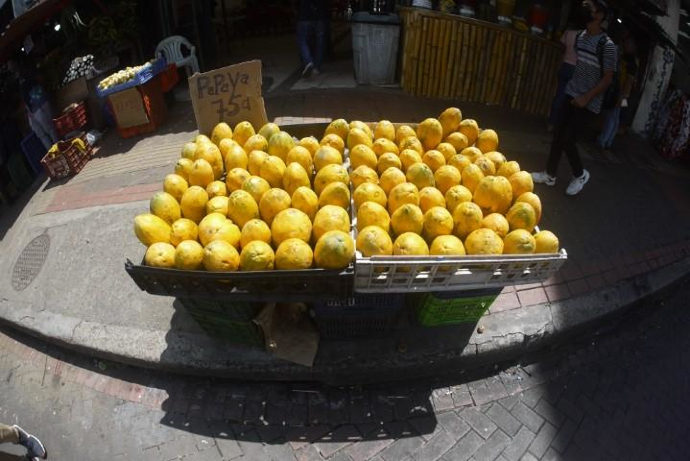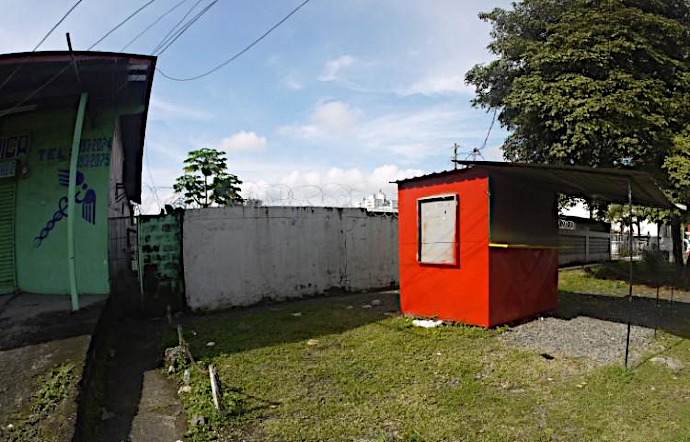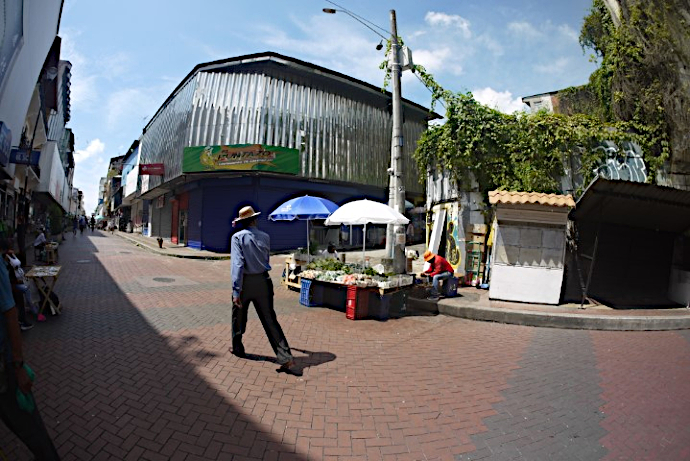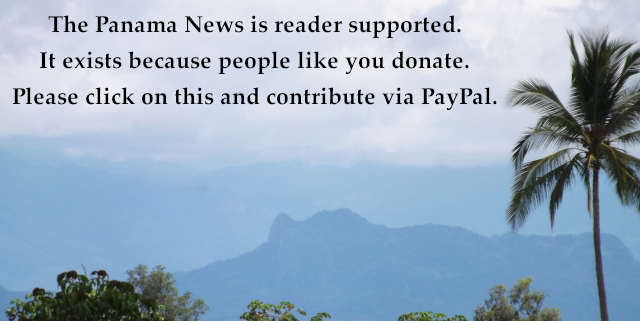We really have the barest threads of a social safety net here. When things are rough you don’t apply for a dole, you find something to sell.
Harder than usual times in the capital, through a 7.5 mm wide angle lens
Photos by Allan Hawkins V.
The COVID epidemic drove a great many Panamanians into the informal economy — we don’t have precise figures at the moment, but it seems that a little less than half of the nation’s economically active adults were working informally before the virus hit, and that figure climbed to more than half. Or so it seems. LATELY, in both the city and the Interior, we see ever more of the premises where informal business as done closed. Probably a lot of that is people who got regular jobs. Some of it may be people who just quit the micro-business life because it doesn’t pay very well.
There is this eternal tension between government and the informal sector. Local governments and petty politicians want to get their cuts, or to allow only their loyal partisan followers to do business on the streets. However, if they get extreme about that they have all these starving people for whom they offer no solutions. There is also a ban on foreigners engaging in such retail business. If food is being sold, there are health inspectors to monitor proper sanitary conditions, even in the informal sector. Might these folks be moved to a stall where they’d have to pay rent to the city? Looks like their businesses are too small to afford it.
Contact us by email at fund4thepanamanews@gmail.com
To fend off hackers, organized trolls and other online vandalism, our website comments feature is switched off. Instead, come to our Facebook page to join in the discussion.
These links are interactive — click on the boxes














